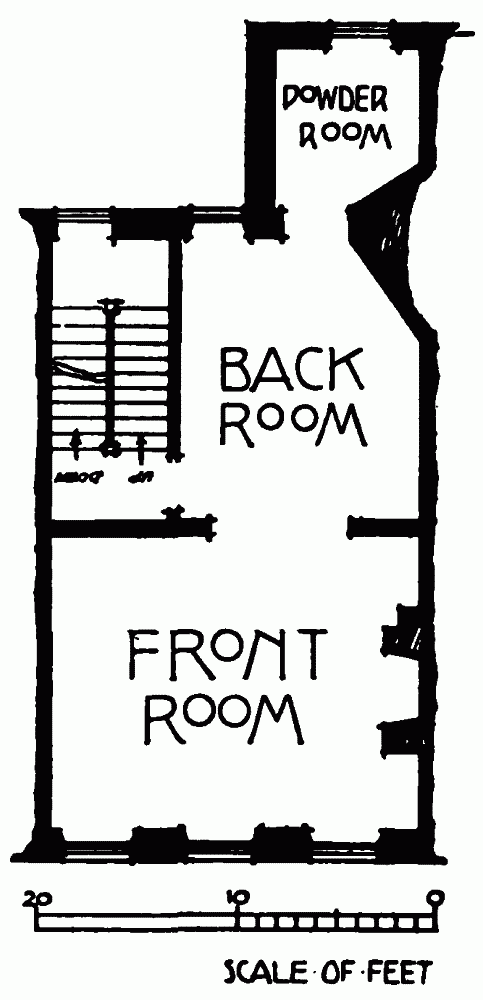Survey of London: Volume 2, Chelsea, Pt I. Originally published by London County Council, London, 1909.
This free content was digitised by double rekeying. All rights reserved.
Walter H Godfrey, 'Cheyne Walk: No. 3', in Survey of London: Volume 2, Chelsea, Pt I(London, 1909), British History Online https://prod.british-history.ac.uk/survey-london/vol2/pt1/pp36-37 [accessed 4 May 2025].
Walter H Godfrey, 'Cheyne Walk: No. 3', in Survey of London: Volume 2, Chelsea, Pt I(London, 1909), British History Online, accessed May 4, 2025, https://prod.british-history.ac.uk/survey-london/vol2/pt1/pp36-37.
Walter H Godfrey. "Cheyne Walk: No. 3". Survey of London: Volume 2, Chelsea, Pt I. (London, 1909), British History Online. Web. 4 May 2025. https://prod.british-history.ac.uk/survey-london/vol2/pt1/pp36-37.
In this section
XXIV.—No. 3 CHEYNE WALK.
Ground landlord.
This house is the property of the present occupier, Rowland Edmund Prothero, Esq., M.V.O.
General description and date of structure.
Built about 1717, this house retains much of its original character as far as the second floor. The front door possesses a charming hood with elaborately carved brackets. The front room on the ground floor has been brought forward slightly, but otherwise the old brickwork is untouched. The plan is similar to that of No. 2, but is reversed, the entrance being on the left-hand side as one approaches. The staircases of the two houses are alike in detail and the little hall (Plate 30) is very characteristic of the period. Mr. Prothero has thrown the front, back, and "powder" rooms into one, both on the ground and first floors. These rooms retain their original panelling and bold cornice. The fireplace in the front room on the ground floor has a good carved chimney-piece with marble slips. In the room above a chimney-piece of "Adam" design has been inserted. The angle fireplaces in the back rooms on both of these floors have lost their mantels. On the second floor the front room has its old panelling but a late fireplace, the back rooms (thrown into one) have each the original architrave around the fireplace, and part of the panelling. The third and fourth floors are modern additions, and the house has been further enlarged by throwing out a projection on brackets on the garden front.

No. 3 Cheyne Walk, Second floor plan.
Measured and drawn by Frank T. Dear
Condition of repair.
The house is in good repair.
Historical notes.
This house was built at the same time as Nos. 1 and 2 on part of the Great Garden of the Manor House, c. 1717. The parish rate-books give the following residents during the 18th century:—
Sir John Goss (lived 1800–1880) resided here at two separate periods, once when organist of Chelsea New Church, and again after he had been appointed organist of St. Paul's Cathedral.
Admiral William Henry Smith (lived 1788–1865), Vice-President of the Royal Society and a founder of the Royal Geographical Society, lived here c. 1840–1851.
Bibliographical references.
Dictionary of National Biography (Sir John Goss and Admiral Smith).
In the committee's ms. collection are—
| 3174. | (fn. 1) View of No. 3 (with No. 4) (photograph). |
| 3175. | (fn. 1) Front doorway (photograph). |
| 3176. | (fn. 1) Hall (photograph). |
| 3177. | (fn. 1) Staircase (measured drawing). |
| 3178. | (fn. 1) Staircase (detail) (photograph). |
| 3179. | (fn. 1) Mantel-piece, ground floor (photograph). |
| 3180. | (fn. 1) Mantel-piece, ground floor (detail) (photograph). |
| 3181. | (fn. 1) Plan, first floor (measured drawing). |